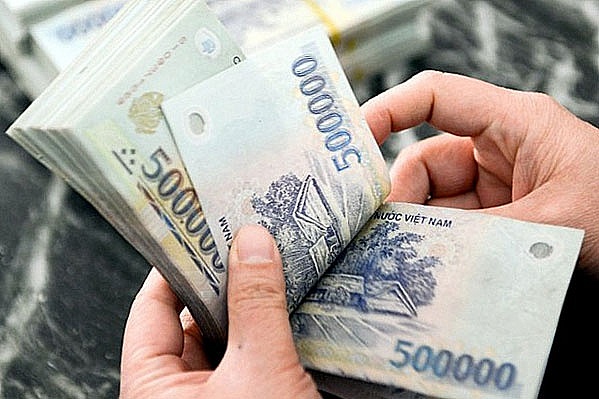Tet bonus 2022 likely to be lower due to the pandemic
 |
| Tet bonuses for employees are not mandatory obligations of the employer |
With only 15 days left of 2021, around this time each year companies begin to announce Tet bonuses for employees. This year, however, businesses remain quiet as many had to stop working for 3-6 months and have yet to resume operations at full capacity due to the pandemic.
According to Ngo Huy Hieu, vice chairman of the General Confederation of Labour of Vietnam, "It is estimated that about 30-50 per cent of businesses will reduce Tet bonuses for employees. Many businesses are still working hard to maintain 13th-month salaries and the bonus will also be lower than last year."
The leather as well as textile and garment sectors are trying to keep Tet bonuses at around 80 per cent of last year. Companies in the southern provinces face more difficulties than those in the north due to longer closing times and labour shortages after reopening.
Businesses in banking, technology, and seaports will likely be able to keep Tet bonuses level with 2021 while other sectors, especialy tourism are likely to be lower than last year.
Tet bonuses have become ingrained in corporate culture for a long time and as salaries and bonuses depend on the health of each business (in accordance with Article 104.1 of the Labour Code 2019), it is a good indicator of the state of affairs at a company and the entire industry.
Bonuses, particularly Tet bonuses, for employees are not mandatory obligations for the employer and are determined based on business results and the level of work completed by employees.
In addition to the Tet bonus in cash, enterprises are allowed to reward employees in kind or in other forms. In fact, there are many businesses that give Tet bonuses to employees in the form of train tickets to return to their hometowns as well as valuable objects such as household appliances and motorbikes.
What the stars mean:
★ Poor ★ ★ Promising ★★★ Good ★★★★ Very good ★★★★★ Exceptional
Related Contents
Latest News
More News
- Masan Consumer names new deputy CEO to drive foods and beverages growth (February 23, 2026 | 20:52)
- Myriad risks ahead, but ones Vietnam can confront (February 20, 2026 | 15:02)
- Vietnam making the leap into AI and semiconductors (February 20, 2026 | 09:37)
- Funding must be activated for semiconductor success (February 20, 2026 | 09:20)
- Resilience as new benchmark for smarter infrastructure (February 19, 2026 | 20:35)
- A golden time to shine within ASEAN (February 19, 2026 | 20:22)
- Vietnam’s pivotal year for advancing sustainability (February 19, 2026 | 08:44)
- Strengthening the core role of industry and trade (February 19, 2026 | 08:35)
- Future orientations for healthcare improvements (February 19, 2026 | 08:29)
- Infrastructure orientations suitable for a new chapter (February 19, 2026 | 08:15)

 Tag:
Tag:




















 Mobile Version
Mobile Version